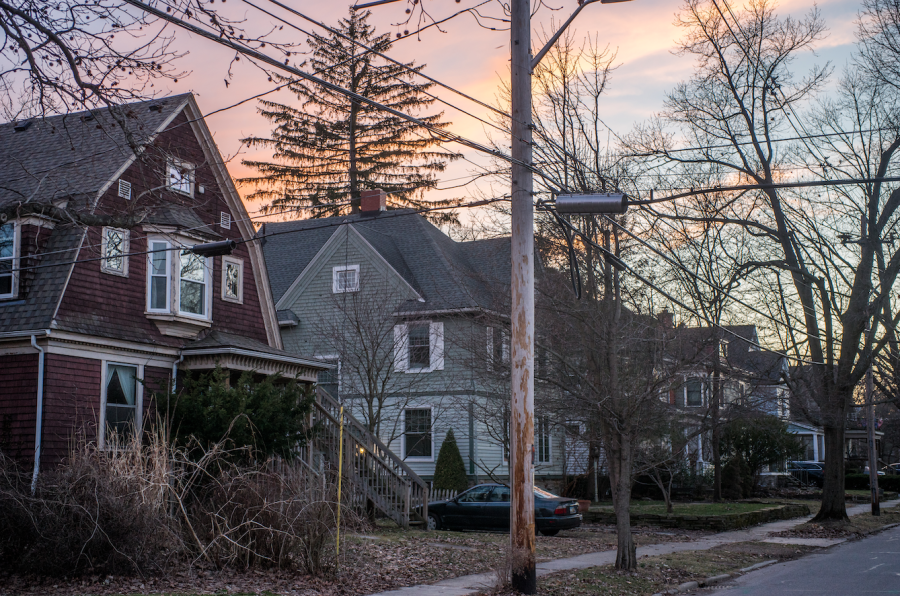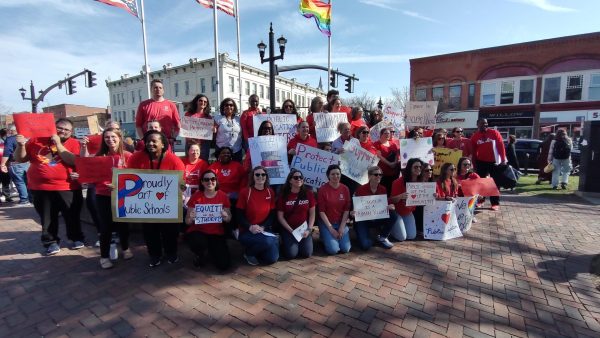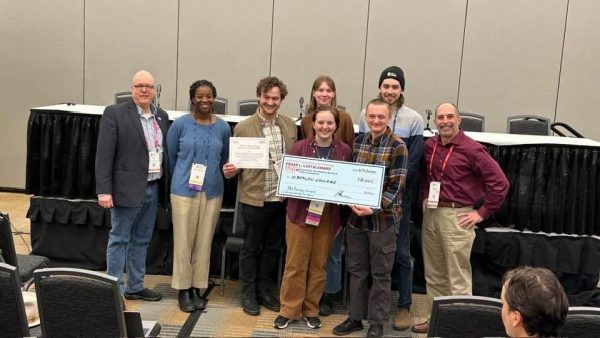City Council Plans to Address Affordable Housing, Short-Term Rentals
Oberlin City Council unanimously voted against a rule that would increase regulations on short-term rental properties.
City Council unanimously voted in a March 7 meeting to shelve proposed regulatory changes that would have required short-term rentals to register with the City and adhere to safety inspections and housing codes. In response, members of the Social Equity Plan housing subgroup raised broader questions about rental regulations and the lack of affordable housing in Oberlin.
Before implementing any regulatory changes to short-term rentals, City Council requested that the Planning Commission — which originally proposed the changes — take into account both the positive and negative implications of the regulations. City Council’s decision occurs as the Ohio House Local Government Committee hears testimony related to H.B. 563, which aims to curb regulations on short-term rentals, further adding to the need to reassess the proposed changes. Currently, the City has no protocols for rental registration and only regulates rental housing quality on a complaint basis.
“We were trying to start a system of basically making them at least register with the City so we know where they are and there’s a contact person locally that could be responsible for the property, because we have some properties that aren’t owner-occupied,” said Carrie Porter, director of Planning and Development. “We would ask for somebody to be responsible for the property, and then we just wanna make sure that they’re safe.”
To some members of the community, these now-shelved regulatory changes raise the long-standing issue of affordable housing in Oberlin. City Council conducted a housing market study in 2017 which found that the City has an insufficient amount of rental and for-sale housing for lower-income families and middle-income seniors, and not enough starter homes in good condition. Additionally, the study noted that between 2000 and 2010, the Black population of Oberlin has decreased as a result of housing and job inaccessibility, falling from 18.5 percent to 14.8 percent of the total population. That trend has continued to this day, as the Black population is now 10.7 percent of the total population, according to the 2020 census. However, the 2017 housing study did not predict the growing popularity of short-term rentals in Oberlin, such as those operated through Airbnb and Vrbo.
Pastor and former Professor of Religion A.G. Miller, who worked with the City on the Social Equity Plan’s housing subgroup, stated that it’s difficult to bring to code the various rental units, both long- and short- term, that are owned and operated by people from out of town — especially as the City currently does not have a complete list of all the landlords and owners of these rental properties.
According to Miller, the lack of regulation around these rental units has led to code violations and misconduct, affecting nearby homeowners. His church, Oberlin House of the Lord Fellowship, has faced problems with rentals in the area, and Miller has had difficulty in contacting them to seek redress.
“This is not to blanket every renter or landlord in the same brush, I’m not trying to do that, but there are several very well-known complexes in town that are owned by people who don’t live in town, some of them live outta state,” Miller said. “If you talk to the code manager [Chris Yates], he will tell you it’s very difficult to bring these people under code and to get them to take care of whatever the violations are in order. It’s interesting to me that we’re talking about Airbnbs and trying to regulate that when you have these larger apartment complexes that are privately owned and have all kinds of violations.”
To Miller, the lack of regulation of Oberlin’s rentals directly applies to the issues of affordable housing, as these out-of-town owners also contribute to Oberlin’s rising rent prices and lack of adequate housing.
“This does raise the specter of affordable housing in Oberlin and its lack thereof,” Miller said. “There’s several things going on here. You had the 2008 housing market crash that I think put a lot of people in crisis. They lost their homes. Speculators came in from outta town — and in town — and began to buy up properties and turn them into various rental markets. Rents began to rise and many of the folk who were either homeowners or lived in housing that was in crises were forced to leave the Oberlin community and to go to Elyria and Lorain, to other communities. … The Oberlin Black community has shrunk in part because of that. You have these interesting factors that are coming together that put crunches on the housing market that does not bode well for low-income working class and moderate-income families.”
According to City Councilmember Ray English, the current outreach phase of the Social Equity Plan will gauge residents’ needs and concerns within the broader umbrella of social equity, but City Council plans to address the issue of affordable housing as soon as possible.
“In the short term, we are gonna go ahead and try to work on issues related to affordable housing,” English said. “There are things that we can do as a city to develop housing, particularly where the city owning the land puts us in a position where we can work with nonprofit organizations that specialize in housing development to get the kind of housing that, within our community, I think we really want.”
The Oberlin Community Land Trust is one such nonprofit organization that aims to provide affordable housing to Oberlin residents. Liz Burgess, owner of Ginko Gallery, and Krista Long, owner of Ben Franklin & MindFair Books, formed the land trust in 2019, following joint research into affordable housing solutions inspired by the 2017 housing study. They received funding from the Community Foundation of Lorain County to create the trust and have since bought their first house.
“The roots of [OCLT] are in the Civil Rights movement and the push in the South to get voting rights passed and enacted in rural communities in the ’60s,” Long said. “It really became a way to protect voting rights, but also to create affordable housing. And the main way it does it is to provide a subsidy to the landowner in exchange for the land trust holding the ownership of the actual ground. … We’re hopeful that by very early summer at the latest, we’ll have a homeowner in there and we’ll start to move on to our next projects.”
City Councilmember and College Outreach and Programming Librarian Eboni Johnson, who also works on the housing subgroup, points to the OCLT as an example of an innovative solution to the lack of affordable housing. Johnson herself struggled for years to find affordable and adequate housing after renting a house in Oberlin.
“There’s an interest and effort of City Council to try to address the housing situation here,” Johnson said. “I really appreciate being able to walk to work, you know; within about a 10-minute time period, I could be from my home to my job. So if we attract people here for work, they need a place to live. And so there’s a lot of other things that go along with that, like transportation. I think it all kind of fits together, but we have to decide what kind of place we want to be and then figure out how to make steps to becoming that kind of place.”







